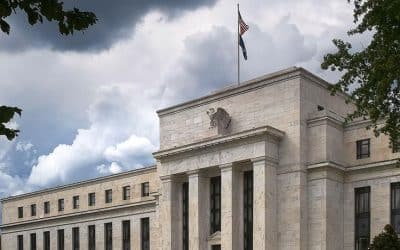The sales season has prices on the way down, but is that also the case for the markets?

Redacción Mapfre
Every summer, consumers take to the streets to find the best deals. It is summer sales season, probably the first entirely normal one after two years of restrictions due to the pandemic. As a result of all this time, online shopping has been gaining ground over in-store shopping, to the point that it now accounts for a significant share of Spanish people’s purchases. The season of low prices, however, is not recurring in the leisure sector, and a downward trend has also taken hold in the stock markets: after the falls of recent weeks, experts have declared a 'bear market' status in almost all the selective markets, both European and American.
From the American side, the S&P500 has registered its worst quarter in 60 years: the stock market crisis has already destroyed more value than in the 2008 financial crisis(-$8 trillion vs. -$10 trillion), leaving investors with a somewhat pessimistic outlook. Its counterparts on the other side of the pond have experienced similar declines: the European stock market reached its lowest level since March, as has the Ibex, which had closed May in the green and fell 8.5% in June, the worst month since the outbreak of the coronavirus. However, Alberto Matellán, chief economist at MAPFRE Inversión, stated in an interview on Radio Intereconomía, that these levels seemed to indicate that, although the falls may continue for a while, "the worst is over."
Once investors leave June behind, a historically positive month for the markets will come, according to Javier de Berenguer, manager of MAPFRE Gestión Patrimonial. But 2022 "is hardly comparable to a 'normal' year: We are experiencing a combination of different types of shocks (monetary, price, supply chain, and war, among others) impacting valuations and making 2022 a unique year," he explained.
The 'signs to buy' coming from equities could signal new opportunities for investors. So, is it time to take advantage of the falls? As Javier de Berenguer states, it is advisable to enter when investing "with a long-term horizon and well-diversified portfolios": "The 'market timing' (trying to predict the trends of stocks by entering and exiting the market) is the main reason for capital loss for retail investors since stock market recoveries usually occur in short periods."
In fact, at MAPFRE Gestión Patrimonial, after having left behind the most pessimistic weeks in the indexes, they still see a greater margin of fall probable for a number of reasons:
- Inflation could continue to surprise with increases and thus pressure central banks to tighten monetary policy further.
- The full impact of rising costs on company margins and profits remains to be seen.
- If we enter a recession period, this impact on profits would be even greater, and the declines would be amplified.
- The war in Ukraine and China's 0 Covid policy continue to be destabilizing factors that should be considered.
Which sectors should we look at?
Even so, in a bear market like the current one, there are certain companies and sectors that investors should take into account with the help of a professional. Traditionally, defensive sectors with stable revenues, such as consumer staples, health care, and utilities, are undoubtedly the most suitable in the context of economic slowdown. The peculiarity, however, of the current environment is that it adds a price increase that puts pressure on companies' margins, so, according to the MGP manager, it is not only advisable to gear the portfolio towards these sectors but also "you will have to find within them the companies with a greater capacity to pass on the increase in costs to the end customer". Ultimately, add quality to the equation as well.
According to the manager's analysis, investors should remain cautious in the technology sector, which he sees as somewhat expensive at the moment, although far from its highs of a year and a half ago, just as he foresees "an unfavorable environment for companies that are smaller (due to greater competition) or in the early stages of growth (due to their poorer access to financing, among other reasons)." In this sense, prudence must be a central part of investors’ philosophy: Javier de Berenguer believes that calm should be maintained in the sectors or assets "that have been the main recipients of flows in recent years and those with greater sensitivity to price/rate increases or economic cycles."
Leaving aside equities, fixed income has experienced somewhat turbulent periods in recent months. Despite this, looking towards this summer period, he placed a high value on maintaining positions in low-duration, high credit quality debt. Thus, MGP is beginning to see "opportunities in credit but always maintaining the two previous requirements."
Active management, therefore, plays a key role in finding opportunities and reducing risk. "We are seeing an extensive range of returns across sectors and investment styles. Because of this, we are committing to active management that endows the management team with greater flexibility. At MGP, we consider this fundamental to navigating market environments like the one we are currently experiencing," the manager clarified.



